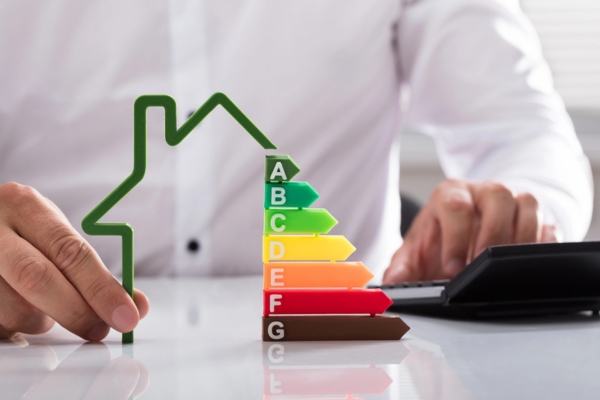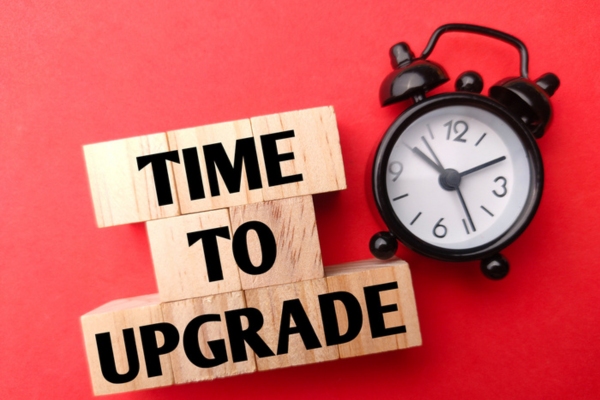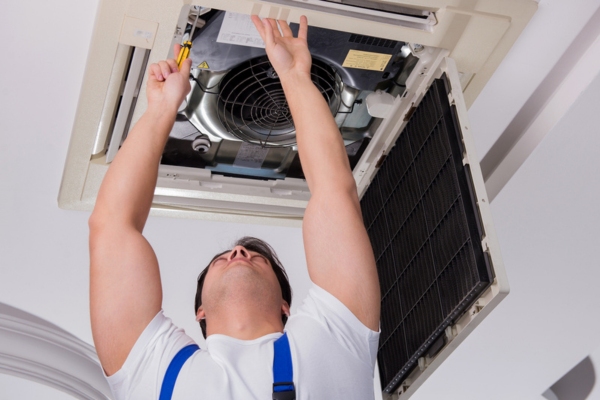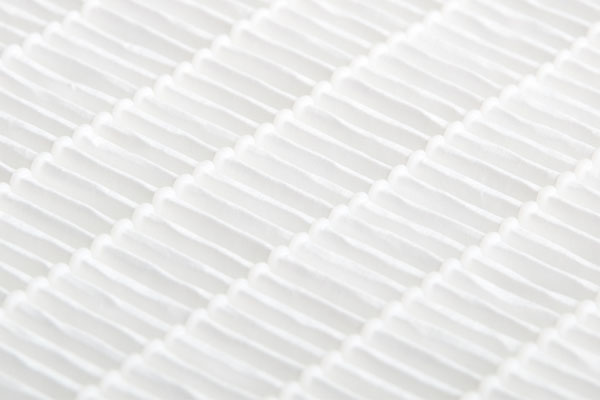Table of Contents [hide]
With the progression of technology, the benchmarks for energy efficiency in air conditioning systems have also elevated. If you’re contemplating installing a new energy-efficient air conditioner or updating your current one, this article from Lake Region Energy is applicable to you.
We’ll explore the enhanced energy efficiency of today’s air conditioners, examining the latest advancements in technology and their advantages. We’ll compare the energy usage of older models to the latest units, revealing how much energy and environmental impact you can save by opting for an upgraded, energy-efficient air conditioner.
How Much More Energy-Efficient Are New Air Conditioners?
Today’s air conditioners represent a leap forward in energy efficiency over their predecessors. With the incorporation of cutting-edge technology, these systems provide the same cooling capabilities but with much lower energy consumption. Meanwhile, older models typically suffer from wear and tear, with aging components, possible leaks, or diminished cooling capacity.
Understanding SEER Ratings

The Seasonal Energy Efficiency Ratio (SEER) is a crucial measure for assessing the efficiency of air conditioners. It calculates the cooling output compared to the energy used. Older air conditioning units usually feature SEER ratings of 10 or below.
However, contemporary models boast SEER ratings of 14 or more. Consequently, newer air conditioners can deliver equivalent cooling effects while consuming up to 30% less energy. Switching to a more efficient model can benefit you with significant energy savings and reduced utility expenses.
Upgrade to an energy-efficient air conditioner and save on your utility bills. Call Lake Region Energy now for expert installation and unbeatable service.
Pros of Upgrading to a New Air Conditioner

Upgrading to a modern air conditioner provides multiple benefits aside from enhanced energy efficiency:
- Superior Cooling Performance: Modern air conditioners incorporate advanced technologies and design enhancements that boost their effectiveness. They can cool your home more efficiently and uniformly, ensuring increased comfort throughout the warmer seasons.
- Increased AC Unit Reliability: Older air conditioning systems are prone to frequent malfunctions and may require more repairs. With a new unit, you gain improved dependability and peace of mind, with a reduced risk of system failures during crucial summer periods.
- Quieter Air Conditioner Operation: Modern air conditioners are engineered to function at lower noise levels than their older counterparts. This advancement allows for a more serene and quiet indoor atmosphere, free from the intrusive sounds of outdated or overtaxed systems.
- Improved Indoor Air Quality: Newer air conditioners are equipped with sophisticated filtration technologies that enhance indoor air quality. These systems excel at trapping and eliminating airborne pollutants like dust, pollen, and allergens, offering considerable benefits for those afflicted with allergies or respiratory issues.
- Smart HVAC Technology Integration: Contemporary air conditioners often integrate seamlessly with smart home systems, enabling remote control and monitoring of your cooling system via smartphone or other connected devices. This integration enhances convenience, allowing greater flexibility and precise control over your home’s climate.
- Increased Home Value: Upgrading to a new air conditioner can enhance your home’s market value. If you are considering selling your property, a modern and efficient cooling system can be a significant selling point, attracting potential buyers.
Air Conditioner Replacement Considerations
Determining when to replace your AC unit involves several key factors. Here are the leading indicators that it may be time to consider an upgrade:
Air Conditioner Unit Age
The age of your air conditioner unit plays a critical role. Most air conditioners are designed to last about 10 to 15 years. If your unit is within or has surpassed this age range, it could be more susceptible to frequent breakdowns and decreased efficiency.
Frequent AC Repairs

If your air conditioner requires continuous repairs and the costs are mounting, investing in a new unit might be more economical. Regular maintenance issues are often a sign that your system is approaching the end of its operational lifespan.
Rising Energy Bills
A noticeable spike in your energy bills, without any change in usage habits, may suggest that your AC unit is losing efficiency. Newer models are engineered for better energy efficiency so that you can enjoy substantial savings on utility costs.
Uneven Cooling or Poor Performance
If your air conditioner fails to cool your home evenly or can’t maintain consistent comfort levels, it could be a sign of an aging or failing unit. Upgrading to a modern model can enhance performance and improve overall indoor comfort.
Excessive Air Conditioning System Noise

Older air conditioners generally operate with more noise. If your air conditioner has become unusually loud or makes strange noises, it might suggest mechanical problems that could necessitate a replacement.
Air Conditioner Refrigerant Phase-Out
It’s recommended that you replace your unit with a newer model utilizing a more environmentally friendly refrigerant.
Consult with a professional HVAC technician to evaluate the condition of your air conditioning unit and provide expert advice on whether a replacement is needed. They can assess your system’s performance, efficiency, and potential repair costs, helping you make a well-informed decision.
Keep your home cool and energy-efficient this summer with a new air conditioner from Lake Region Energy. Contact us today for a free estimate!
Key Features in Energy-Efficient Air Conditioner Units

When selecting energy-efficient AC units, several important aspects should be considered. Here’s what to focus on:
Energy Efficiency Ratings
Pay attention to the unit’s Energy Efficiency Ratio (EER) and Seasonal Energy Efficiency Ratio (SEER). Higher ratings signify greater energy efficiency. Opt for units with a high SEER rating, which reflects the unit’s efficiency throughout the cooling season.
ENERGY STAR Certification
Seek out units that carry the ENERGY STAR label. These models meet stringent energy efficiency standards set by the Environmental Protection Agency (EPA). Investing in an ENERGY STAR-certified unit can lead to significant energy bill savings and lower environmental impact.
Programmable Thermostats
Choose AC units compatible with programmable or smart thermostats. These devices let you adjust temperature according to your daily schedule, optimizing energy use and minimizing waste.
Variable-Speed Compressors
Opt for units featuring variable-speed compressors. These compressors adapt their speed to the cooling needs, offering more accurate temperature control and improving energy efficiency.
Dual-Stage or Multi-Stage Cooling
Consider air conditioners with dual-stage or multi-stage cooling systems. These systems offer varied capacity levels that adjust according to the cooling demand, providing enhanced flexibility and energy savings, especially during less extreme weather conditions.
Efficient HVAC Air Filters

Select units that come with high-quality air filters. These filters improve indoor air quality and promote better airflow, enhancing the efficiency of your air conditioning unit.
Air Conditioner Size and Capacity
Choose a unit correctly sized for your space. Oversized and undersized units can cause inefficiencies and reduce comfort levels. It is advisable to consult a professional to identify the optimal size and capacity for your particular needs.
Are you ready to enhance your home’s comfort and efficiency? Reach out to Lake Region Energy for top-notch air conditioner installations and maintenance.
HVAC Warranty
Always check the manufacturer’s warranty. A longer warranty period often reflects the manufacturer’s confidence in the unit’s durability and performance.
Conclusion
Modern air conditioners bring substantial improvements in energy efficiency, yielding both environmental and financial advantages. Thanks to technological advancements like variable-speed compressors and smart thermostats, these units maximize energy use while providing precise temperature management.
Nevertheless, engage HVAC professionals when selecting a new energy-efficient air conditioner. They can accurately evaluate your requirements, suggest the most appropriate unit, and handle the installation correctly. HVAC experts have the necessary knowledge and skills to aid you throughout the selection process, helping you achieve optimal energy efficiency and maintain a comfortable indoor climate.
Contact Lake Region Energy for All Your HVAC Needs
Lake Region Energy stands out as the premier provider of heating and cooling solutions in Maine and New Hampshire. Our team comprises highly skilled, professionally certified technicians specializing in HVAC tune-ups, repairs, installations, and replacements. We are committed to delivering exceptional quality services to our customers.
Lake Region Energy understands the significance of maintaining a comfortable and energy-efficient home, so all our services are competitively priced. Our maintenance solutions can help enhance comfort and minimize energy costs. Whether you need an HVAC repair or a complete system replacement, our knowledgeable technicians will guide you to the best solutions, considering your budget. We are confident in our work and back it with a satisfaction guarantee.
To arrange a service visit, call us. We provide free, in-home estimates to assist you in making well-informed decisions about your HVAC needs. Trust Lake Region Energy to deliver outstanding heating and cooling services that will meet and surpass your expectations!
For more information about our fuel deliveries and HVAC services, be sure to contact Lake Region Energy. You can click here to contact us, or you can call us at (207) 839-5500 to find out more. We offer a full line of heating and cooling repairs, maintenance services, and installations. Click the link to view our service area.

Related Articles:
- Cool Comfort: Architecture’s Evolution With Air Conditioning
- Air Conditioner’s SEER Rating: What You Need to Know
- Clearing the Air: Identifying Air Conditioner Smells Sources
- Reasons Why Your AC Compressor Is Working But Not Cooling
- Proper Air Conditioner Care: Avoid These 3 Habits to Preserve Your Unit
